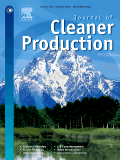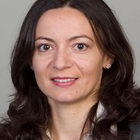
Electricity transition in the MENA: a de-risking governance approach
Vidican, Georgeta / Luigi Carafa / Gianleo FrisariExternal Publications (2015)
in: Journal of Cleaner Production128, 34-47
DOI: https://doi.org/10.1016/j.jclepro.2015.07.012
High upfront costs and investment risks constitute critical barriers for investments in lowcarbon infrastructure technologies in the Middle East and North Africa. This paper uses a case study of
Morocco's solar strategy for the electricity sector in order to explore how domestic versus regional/multilateral governance structure impact upon the downside risk of clean energy investments
and translate into lower financing costs. We firstly process-trace the differential effects of governance on policy and financial de-risking, intended as risk reduction and risk transfer. Then we quantify the impact of policy and financial de-risking on the financing costs of the Ouarzazate CSP Noor 1 project. Our results suggest that (i) policy and financial de-risking depended on a clear policy commitment of the government to develop solar electricity, a strong domestic institutional capacity to transform commitment into concrete projects, as well as a strong commitment of development finance institutions. At project level, our results suggest that (ii) lower financing cost depended on concessional finance provided by multiple lenders, proactive policy de-risking efforts taken at domestic level, and the competitive auction. Besides the expected impact of concessional finance, these findings lend qualitative-quantitative support to the argument that domestic policy de-risking pay off, unlocking concessional finance and reducing the private investors' required return from the project. Therefore, governments of the Middle East and North Africa countries should pursue any efforts in implementing or enhancing policy de-risking measures. Under the emerging post-2020 climate policy regime, new instruments might also incorporate a focus on investment risks through country-specific technical and financial assistance. However, our results suggest that electricity policy legacies and practices are very hard to change in the Middle East and North Africa. Therefore, technical and financial assistance should target especially those areas that have a particular policy de-risking potential: namely capacity-building on project assessment, project finance, and grid management.

